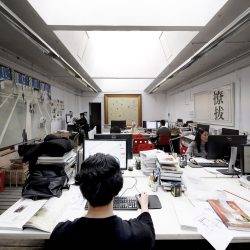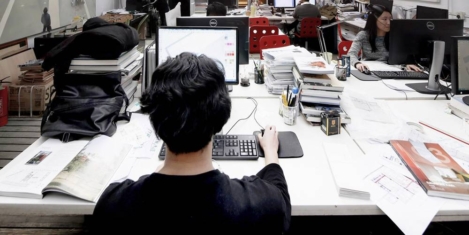To provide the best experiences, we use technologies like cookies to store and/or access device information. Consenting to these technologies will allow us to process data such as browsing behaviour or unique IDs on this site. Not consenting or withdrawing consent, may adversely affect certain features and functions.
The technical storage or access is strictly necessary for the legitimate purpose of enabling the use of a specific service explicitly requested by the subscriber or user, or for the sole purpose of carrying out the transmission of a communication over an electronic communications network.
The technical storage or access is necessary for the legitimate purpose of storing preferences that are not requested by the subscriber or user.
The technical storage or access that is used exclusively for statistical purposes.
The technical storage or access that is used exclusively for anonymous statistical purposes. Without a subpoena, voluntary compliance on the part of your Internet Service Provider, or additional records from a third party, information stored or retrieved for this purpose alone cannot usually be used to identify you.
The technical storage or access is required to create user profiles to send advertising, or to track the user on a website or across several websites for similar marketing purposes.
 Around the world in 80 architecture offices
Around the world in 80 architecture offices







 Over half of the workforce (57 percent) of employees admit to officially downing tools today (Monday 18 December) as the festive period gets well and truly underway, claims new research by Peakon. The HR analytics firm’s survey of more than 2,000 people reveals that, as Christmas creeps ever closer, employees admit to a whole raft of distractions from their everyday work duties. Two in five people (42 percent) confess to clocking off to Christmas shop online, a third (35 percent) say they’re planning Christmas day and almost one in three (30 percent) are planning their Christmas break instead. One in six (16 percent) confess to indulging in the odd Christmas tipple on the job – with men twice as likely to take advantage of a festive drink than women (22 percent and 11 percent respectively). 17 percent of those surveyed leave work earlier than usual, and one in 10 (12 percent) take longer lunches. A small percentage (4 percent) confess to calling in sick. But offering staff more flexible hours for shopping and Christmas prep would help maintain performance.
Over half of the workforce (57 percent) of employees admit to officially downing tools today (Monday 18 December) as the festive period gets well and truly underway, claims new research by Peakon. The HR analytics firm’s survey of more than 2,000 people reveals that, as Christmas creeps ever closer, employees admit to a whole raft of distractions from their everyday work duties. Two in five people (42 percent) confess to clocking off to Christmas shop online, a third (35 percent) say they’re planning Christmas day and almost one in three (30 percent) are planning their Christmas break instead. One in six (16 percent) confess to indulging in the odd Christmas tipple on the job – with men twice as likely to take advantage of a festive drink than women (22 percent and 11 percent respectively). 17 percent of those surveyed leave work earlier than usual, and one in 10 (12 percent) take longer lunches. A small percentage (4 percent) confess to calling in sick. But offering staff more flexible hours for shopping and Christmas prep would help maintain performance.








December 14, 2017
How designers copy nature to create new and extraordinary forms
by Charles Marks • Comment, Workplace design
Humans have a long track record of turning to Nature for inspiration. When Leonardo da Vinci turned his mind to the challenge of acquiring the power of flight for mankind, his sketches show he believed the solution lay in mimicking the form and function of bat wings. We’ve learned a lot about aerodynamics since the fifteenth Century but nature continues to provide a blueprint for the way we design materials and structures. Researchers at the University of Alabama have recently won a grant from the US National Science Foundation to explore how the scales on the wings of butterflies (pictured) help the creatures to fly in the hope that it will help engineers design better and more efficient aircraft.
(more…)